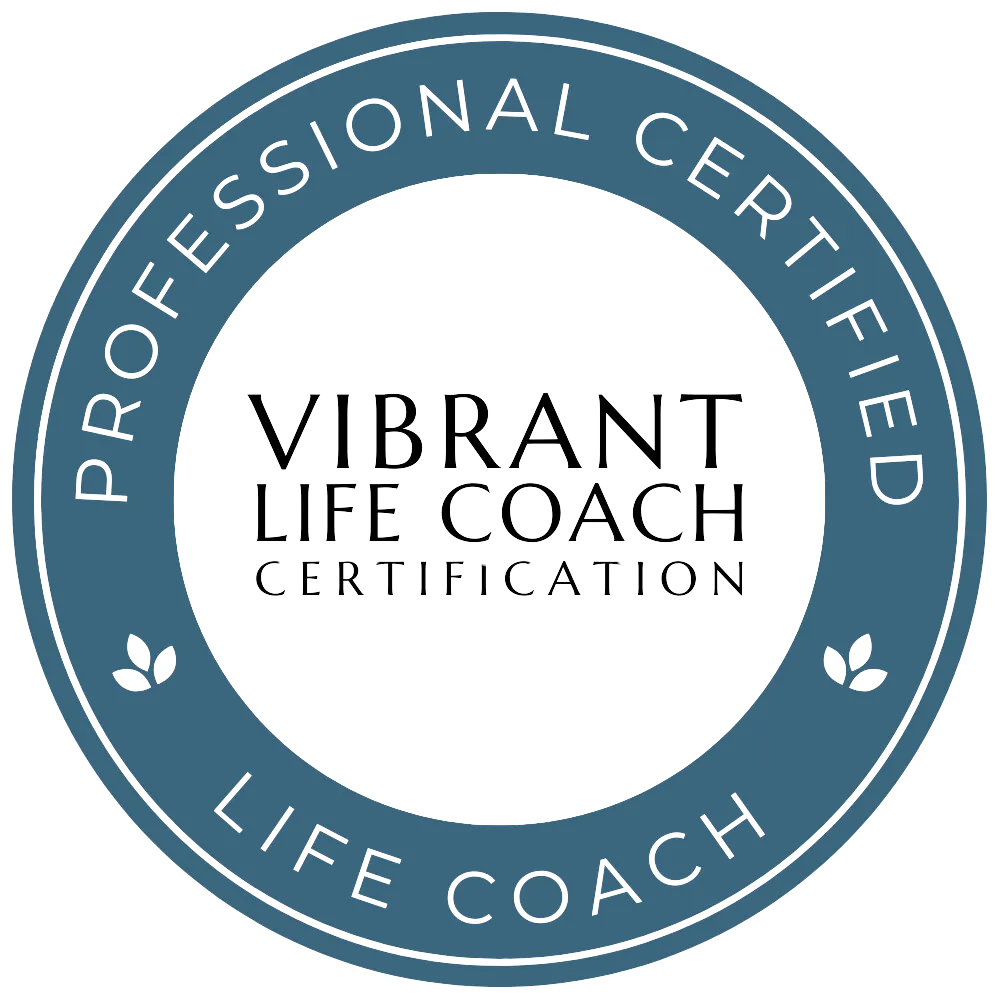The Boundary Boost
Practical advice, insightful strategies, and real-life examples to help you create a balanced and fulfilling life through healthy boundary setting.
Subscribe now to get your weekly boost — direct to your inbox!

Your Burning Boundaries Questions…Answered
I recently took to social media and asked my followers: When it comes to setting boundaries as a mom, what is your biggest question? Here’s what they said—and my responses.
What’s the best way to get rid of the guilt of feeling like you are letting someone down or are being selfish?
This is such a great question, and soooo common—mom guilt is REAL! This is 100% a mindset issue. One powerful way to overcome mom guilt is to shift your focus from what you’re not doing to what you are doing. For example, instead of feeling guilty about working late one night, focus on the fact that your career allows you to provide for your family, set a positive example, and pursue your personal goals.
AND, one of the most empowering mindset shifts I learned is at the heart of boundary-setting: I am 100% responsible for my own thoughts, feelings, and actions, and NOT AT ALL responsible for the thoughts, feelings, or actions of others.
This blog post goes into more detail on five key mindset shifts that can help you break free from the guilt.
I tend to err on the side of “oh you’ll be fine. You’re good etc” because that is what I told myself growing up with my parents going through multiple divorces, moving, etc. I catch myself sometimes and feel so bad because I always want my girls to express themselves but I’m also kind of hard.
I feel you on this! I’ve worked so hard to shed the “hardness” I was taught growing up, but every once in a while I hear my mother’s voice come out of my mouth and it’s like, OOF.
I hope you know that by the simple fact of recognizing this in yourself, you are already way ahead! Our own parents probably never got there themselves.
Three thoughts come to mind on this:
1) When you do catch yourself in that moment (or even after), OWN it – to yourself, and to your girls. Admit to them that you realize that your reaction was hard, and let them know that you feel bad. Moms can make mistakes – and by admitting them and owning them with our kids, it makes us human and also builds a bond.
2) While the “you’ll be fine” or “you’re good” are our knee-jerk way of trying to fix it, that may not actually be what they need in that moment. Try asking them “What do you need from me right now? Do you want me to just listen, do you want advice, or to you want me to do something about it?” This will go a long way toward validating the emotions you want them to express.
3) Lastly, A MOMENT MATTERS. The knee-jerk response is STRONG, but if you can try to pause, take a breath or two, before reacting, this will give you the opportunity to respond differently.
You can find more on this in my blog post here.
How do you learn to let go and accept they don’t need you anymore ( ok I know they need me but it’s way less than when they were little). I’m trying to let my oldest live his life but it’s hard to accept these new boundaries that have been set (not by anyone in particular but by life and the cycle he’s in).
Transitions are SO HARD, and especially with our kids! We’ve just spent 16+ years taking care of them, teaching them right from wrong, having them need us for EVERYTHING…and now it’s all changed, and we have to get our bearings.
First and foremost—and I really think this is the biggest thing—it’s OKAY to mourn the way things used to be. Let yourself and give yourself the time do that! Give yourself some grace here.
Once you’ve really had a chance to process this transition, you can start thinking about if from a different perspective: you now have an opportunity to build a WHOLE NEW relationship with your young adult child. That can be exciting, and fun! You’re so right, they DO still need you and WILL need you in the future, but for different things.
Thinking along the lines of navigating these new boundaries, you might find this blog post useful!
How do you know you’re doing enough?
Wow, this is a million-dollar question! I have a question in response: “enough” according to whom? If that “enough” is based on what anyone else thinks, then my answer is, it doesn’t matter. We can waste a LOT of energy trying to be enough for other people, meet all of their needs, grant all of their wants, and still NEVER GET THERE. It’s like the horizon…you can keep running toward it and it still stays far away in the distance. And that’s EXHAUSTING.
My next question is, What does “enough” look like to YOU? FOR YOU? Are you meeting your own needs? The Supermom Myth dictates that we need to put everyone else first, despite our own wants and needs. But the real and simple truth is that you can’t pour from an empty cup.
Final thought: Enough can be a state of mind. It’s more of an acceptance of what is in the moment, even if you want more. Practicing gratitude for what is, and allowing that to be enough, is one tactic to get there. But it’s also setting clear boundaries to allow yourself time and space to care for yourself first. You may not be able to “do enough” for anyone else, but you do have the power to do that for yourself.
Here's a blog post that may help!
How do you address SETTING boundaries, where a son has witnessed a lack of respect, and mirrors those actions?
Our kids are always watching, absorbing, learning, and—as you said—mirroring the actions of those around them. Whether those actions he witnessed are by you or by others, I think this offers an excellent OPPORTUNITY to open the conversation about setting healthy boundaries. Use it!
Make it a conversation, not a lecture. Ask them how they feel about it. What they think about the situation in question. Seek to understand their side of things FIRST. Make sure they know that you hear them before you talk about what YOU think. (Because if you launch into “I see you’re being disrespectful and I know exactly what you have to do about it,” they will SHUT DOWN.)
ALSO: One thing I find with my own kids is that they do hit a wall—try to keep an eye out for the moment when their eyes start to glaze over.
This blog post goes into more detail about helping our kids navigate boundaries!
One thing that I am addressing is introducing flexibility. People in my house tend to think in very black and white, so we can be really good at boundaries but really bad at offering grace when needed.
Yes, it is a common misconception that boundaries are supposed to be rigid and unchanging. But I’m sure you are seeing with your family that this can cause more friction than good at times!
Boundaries are not fixed rules; they’re dynamic and adaptable. Your and their needs may change over time, and the boundaries can—and should—evolve accordingly. Flexibility doesn’t weaken your boundaries; it strengthens them by ensuring they remain relevant and effective.
I think you probably also know and have experienced that trying to address any boundary conflicts IN THE MOMENT likely not going to get you very far, especially with “black and white” thinkers. This one may need more planning, perhaps during a family meeting or even as a casual discussion over dinner—when emotions won’t be so high.
Check out this blog post for more about this and other common boundary myths.
How to move past the negative thoughts "I'm abandoning my kids" or "I'm being selfish" when I set boundaries?
Oh, this is such a common way of thinking—you are not alone! First and foremost: When you set boundaries, it’s important to remember that protecting your time and energy actually benefits your kids in the long run. Setting healthy boundaries teaches them the value of self-care, respect, and balance, which are crucial lessons for their own future. You’re not abandoning them; you’re ensuring that you have the capacity to show up as your best self. By prioritizing your well-being, you’re fostering a healthier, more connected family dynamic.
So, instead of thinking “I’m abandoning my kids” or “I’m being selfish,” can you reframe with a more positive thought? Maybe something like, “Taking time for myself will make me a better mom,” or “Taking care of myself helps me be a more present and patient parent.”
You might want to check out this blog on shifting your mindset away from the mom guilt: https://stephkoenig.com/boundary-boost-blog/b/5-key-mindset-shifts-for-overcoming-mom-guilt
Hugs to you!
How do I get past the feeling they won't love me anymore?
I’m so sorry you’re feeling this way. That’s hard. The fear of not being loved because of your boundaries often stems from the belief that love is conditional on constantly giving or sacrificing. In reality, setting boundaries teaches others to respect your needs, which strengthens relationships and fosters mutual respect. Healthy boundaries are a sign of self-respect, and when you model this, you show others that love isn’t about over-giving, but about balance and healthy connection.
Byron Katie’s The Work is a powerful method for questioning and reframing limiting beliefs. To reframe the belief "They won’t love me anymore" using her Four Questions, you can follow these steps:
1. Is it true?
Ask yourself: Is it really true that setting boundaries will make them stop loving me? Reflect on whether there is any evidence to support this belief.
2. Can you absolutely know that it's true?
Ask: Can I know for sure that they won’t love me anymore if I set boundaries? Consider if it's possible that they will still love you, or even respect you more, for setting healthy limits.
3. How do you react, what happens, when you believe that thought?
Notice how believing the thought "They won’t love me anymore" makes you feel—perhaps anxious, guilty, or fearful. Observe how it affects your behavior, potentially leading you to overextend yourself and not set boundaries at all.
4. Who would you be without that thought?
Imagine who you would be if you didn’t believe that thought. You might feel more confident, peaceful, and capable of setting boundaries, knowing that love isn’t dependent on over-giving or neglecting your own needs.
Finally, you can turn the thought around to its opposite: "They will love me even more if I set boundaries." Explore how this new belief could be just as true, or even more true, by reflecting on past experiences where setting boundaries led to deeper respect and stronger connections.
Hugs to you!
How do I tell the difference between a healthy boundary and a "selfish" demand?
Great question! For this, I go back to the sacred rule of healthy boundaries: “You are 100% in control of your own thoughts, feelings, and actions, and not at all in control of the thoughts, feelings, and actions of others.” Are you setting a boundary to change how someone else feels or acts? Or demanding that they comply with your boundary “or else,” without leaving room for communication or mutual understanding? Then you’re probably drifting into that “selfish” territory.
BUT—true boundaries are about protecting your space, energy, and well-being—and these are not selfish, but necessary. These help you to have the time and peace of mind to be able to care for, nurture, and otherwise support your family. Now, many moms have a tendency to think that making time for themselves, investing in self-care, choosing to spend time with friends—or other actions that are purely about themselves—as selfish. But it’s important to remember that even though we are moms, we are also individuals in our own right, we’re friends, we’re career women, we’re deserving of being physically and emotionally healthy, and experiencing personal growth, and building our careers, and being WHOLE. This makes us all the better as moms, and wives, and even CEOs of our household (as many of us also are!).
For more on why self-care is non-negotiable, see my blog: https://stephkoenig.com/boundary-boost-blog/b/self-care-is-non-negotiable-7-practical-tips-for-protecting-your-personal-time

Explore
HOME
ABOUT
WORK WITH ME
BLOG
On Social
YOUTUBE
Copyright 2025 | Steph Koenig Coaching | Terms & Conditions

